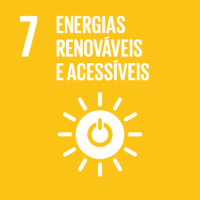Ciência_Iscte
Publicações
Descrição Detalhada da Publicação
International knowledge networks in sustainable energy technologies: evidence from European projects
10th European Conference on Innovation and Entrepreneurship, ECIE 2015
Ano (publicação definitiva)
2015
Língua
Inglês
País
Reino Unido
Mais Informação
--
Web of Science®
Scopus
Esta publicação não está indexada na Scopus
Google Scholar
Esta publicação não está indexada no Overton
Abstract/Resumo
The aim of the current paper is to analyse international research collaborations in order to define patterns of international knowledge sharing. Research collaborations have become the norm in scientific and technological research. These collaborations often materialise in formal research projects. In this paper we will focus on research projects funded by the European Commission with Portuguese participation, mainly within the context of the Framework Programmes (FPs).
We adopt the Triple Helix framework to investigate the way Portuguese universities, companies and other organisations are inserted in these collaborations and the role they play within them, in a dynamic form. This framework stresses the complex dynamics between academia, industry and government in the processes of knowledge production and innovation.
We use Social Network Analysis to capture the composition and configuration of these international collaborations, considering them as knowledge networks. The empirical analysis of this research draws on data from the CORDIS database. We consider only projects that involve at least one Portuguese partner and address the “Renewable Sources of Energy” subject. We have identified 427 different projects, involving 2530 organisations from 83 countries. The analysis covers the period between 1985 and 2014.
The results uncover an evolution consistent with the propositions of the Triple Helix framework. First, we witness the importance of universities, which are becoming more and more central in the knowledge network. Second, we observe the increasing participation of companies in the research, raising their share in the network composition to values similar to those of universities. Finally, the results reveal the strengthening of the interaction between the three agents: projects that bring together academia, industry and universities are now the most frequent type, unlike what occurred at the beginning of the period under review. This study contributes to further the understanding of cross-border knowledge sharing and creation, considering several types of actor and interaction and their dynamics.
Agradecimentos/Acknowledgements
--
Palavras-chave
International knowledge networks,International research collaborations,European framework programmes,Social network analysis,Sustainable energy technologies
Classificação Fields of Science and Technology
- Economia e Gestão - Ciências Sociais
Registos de financiamentos
| Referência de financiamento | Entidade Financiadora |
|---|---|
| UID/SOC/03127/2013 | Fundação para a Ciência e a Tecnologia |
Contribuições para os Objetivos do Desenvolvimento Sustentável das Nações Unidas
Com o objetivo de aumentar a investigação direcionada para o cumprimento dos Objetivos do Desenvolvimento Sustentável para 2030 das Nações Unidas, é disponibilizada no Ciência_Iscte a possibilidade de associação, quando aplicável, dos artigos científicos aos Objetivos do Desenvolvimento Sustentável. Estes são os Objetivos do Desenvolvimento Sustentável identificados pelo(s) autor(es) para esta publicação. Para uma informação detalhada dos Objetivos do Desenvolvimento Sustentável, clique aqui.

 English
English


